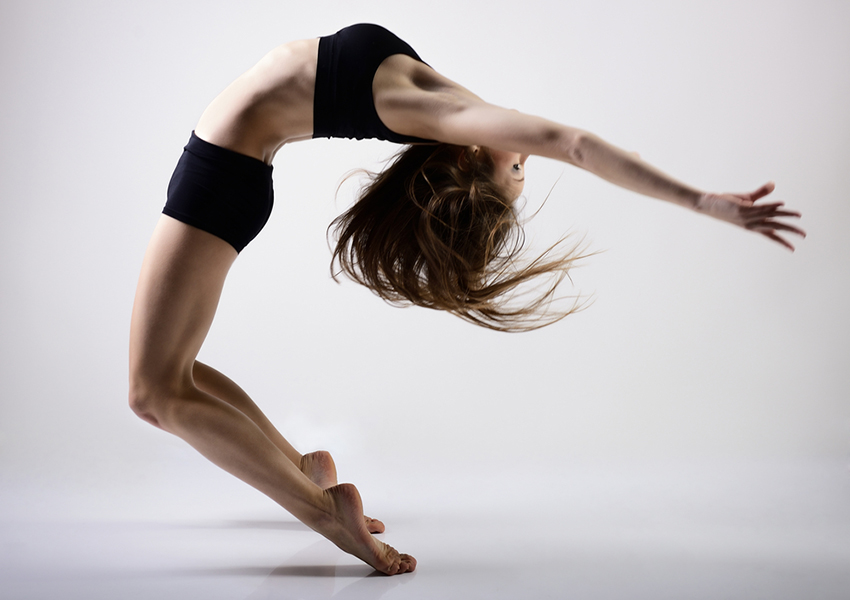Flexibility: Why It’s Important and How to Improve It

Flexible woman image via shutterstock
Chances are, the only time flexibility factors into your everyday life is when straining to do a crazy pose in yoga or a split in barre class. You may give it a passing thought at the time, or marvel at your neighbor’s textbook perfect downward dog, but it probably doesn’t get much more of your brain power.
According to Linda Arslanian, director of rehabilitation services at Brigham and Women’s Hospital, it may be more important than you think. “Muscles work better when the joints and the tendons and the connective tissues are flexible than when things are stiff and tight,” Arslanian says, calling it one of the components of good physical well-being. “Muscles have to work harder to overcome stiff joints or stiff connective tissue, so you’re actually more efficient when you’re flexible.” Although it hasn’t been proven for sure, some experts believe flexibility can also help to prevent muscle strain and injury, she adds.
That said, don’t panic if you’re the only person in yoga who can’t touch your toes—Arslanian says it’s probably natural. “Body types somewhat dictate the potential amount of flexibility and/or strength that you could have,” she says. “Flexibility is somewhat inherited, or somewhat a trait that’s specific to your body type.” She also adds that losing flexibility as you grow older, as elasticity in the connective tissues decreases, is perfectly normal and not cause for concern.
The only time flexibility is cause for concern, Arslanian says, is when your ability changes drastically and quickly. “If there’s a sudden change in the degree of flexibility you have, like how far you can reach down to your feet and things like that, it can be a symptom of worsening arthritis or some other condition that can cause joint stiffness,” she explains. “If you think you might not be as flexible as the average person, what’s most important is whether your own flexibility has changed significantly in a short period of time.”
Still not satisfied? Arslanian says you can improve your flexibility over time—but there’s no fail-safe way to do so. “The only way you can improve flexibility is to stretch. You can’t do it by strengthening, you can’t do it by regular activities,” she says, adding that stretching once your muscles are warmed up and pushing to the extremes of your range of motion when doing things like yoga can also help. “There’s no magic way to improve flexibility other than to do flexibility exercises or activities.”

